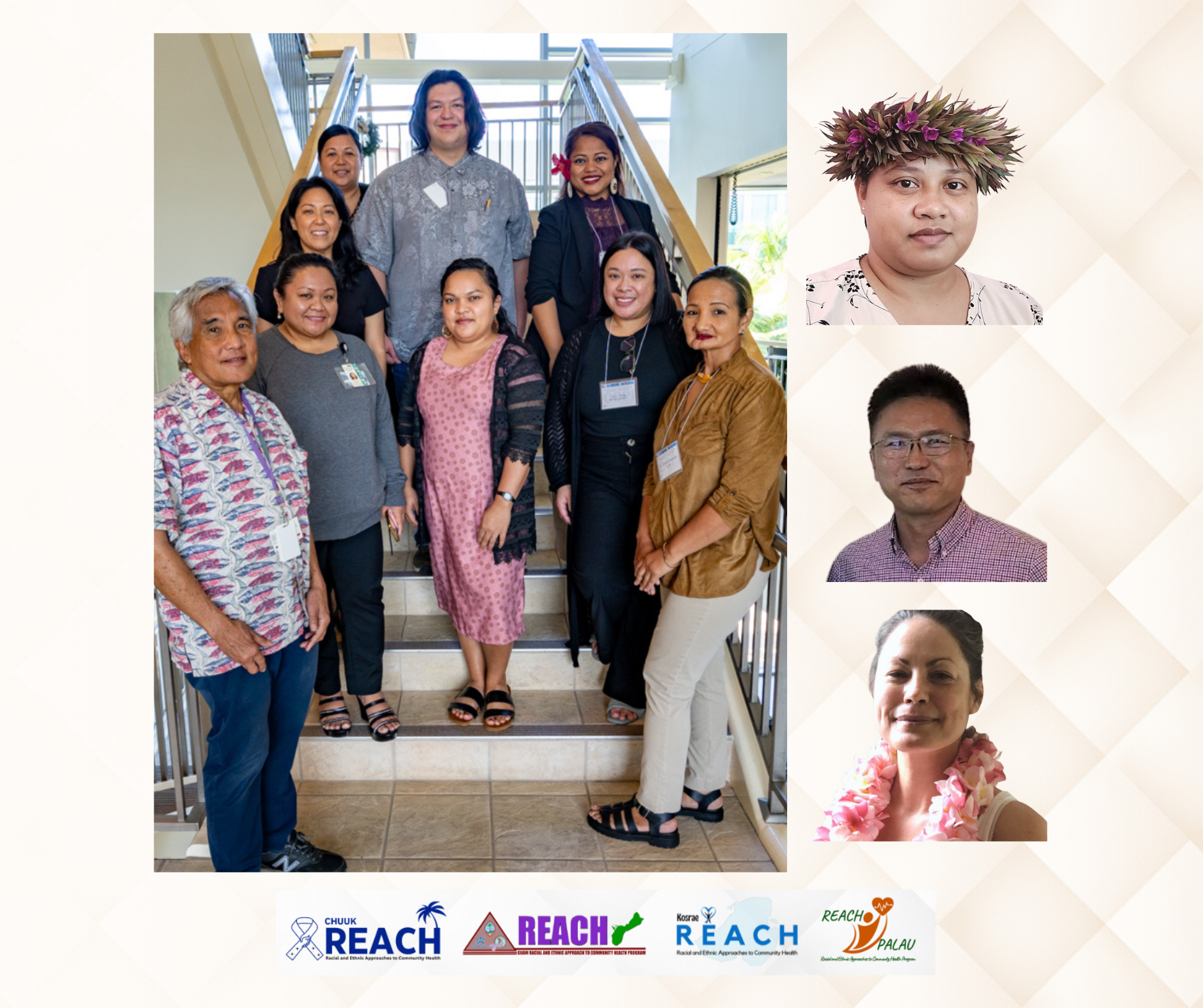The Racial and Ethnic Approaches to Community Health (REACH) grant from the United States Centers for Disease Control and Prevention (CDC) focuses on reducing non-communicable diseases in various communities. The REACH project strives to make healthy choices easier by promoting healthy behaviors and chronic disease management.
In September 2023, the Department of Family Medicine and Community Health (DFMCH) at the University of Hawai’i John A. Burns School of Medicine was awarded REACH funds to work with the United States Affiliated Pacific Islands (USAPI) on nutrition, tobacco, physical activity, and adult vaccination policy, system, and environmental interventions. This 5-year REACH grant uses community-based participatory approaches to identify and develop tailored strategies. This project strengthens the existing collaboration of the local coalitions, health departments, clinics, government agencies, community organizations, and other partners from various settings and disciplines to take action to address risk factors contributing to chronic diseases.
The USAPI REACH project goals are to:
The approach of REACH is to continue collaborations with partners and leaders to address non-communicable diseases.
|
JURISDICTION |
NUTRITION |
TOBACCO |
PHYSICAL ACTIVITY |
|
Guam |
Enhance healthy nutrition standards/food service guidelines at the government of Guam vending machines Increase uptake of existing fruit and vegetable incentive programs at Pay-Less Markets |
Enhance tobacco control and prevention policies in Guam; identify and train community champions to relay the burden of tobacco use and exposure including vape use among youth and flavored commercial and electronic cigarettes, and tobacco cessation/Brief Tobacco Intervention (BTI) information |
Create activity-friendly routes for Mangilao Village |
|
Republic of Palau |
Enhance healthy nutrition standards/food service guidelines in feeding practices/food service programs policies and contracts and promote healthy food procurement at the senior center Increase uptake and expansion of produce prescription programs at NCD clinics |
Strengthen and enhance the Ministry of Health and Human Services (MHHS) betel nut and tobacco-free policies |
Create activity-friendly routes in Airai |
|
FSM Kosrae State |
Enhance healthy nutrition standards/food service guidelines in feeding practices/food service programs policies and contracts at early care education centers Increase uptake and expansion of produce prescription programs at the NCD clinic |
Enhance and strengthen tobacco control and prevention policies at the Kosrae government agencies |
Create activity-friendly routes for Tafunsak Village |
|
FSM Chuuk State |
Enhance healthy nutrition standards/food service guidelines in feeding practices/food service programs policies and contracts, and promote healthy food procurement at after-school sporting events Increase uptake and expansion of produce prescription programs at the NCD clinic |
Enhance and strengthen tobacco control and prevention policies at local public gyms |
Create activity-friendly routes at Anderson Field |

Digital Stories:
Pohnpei’s physical activity video
List of publications: